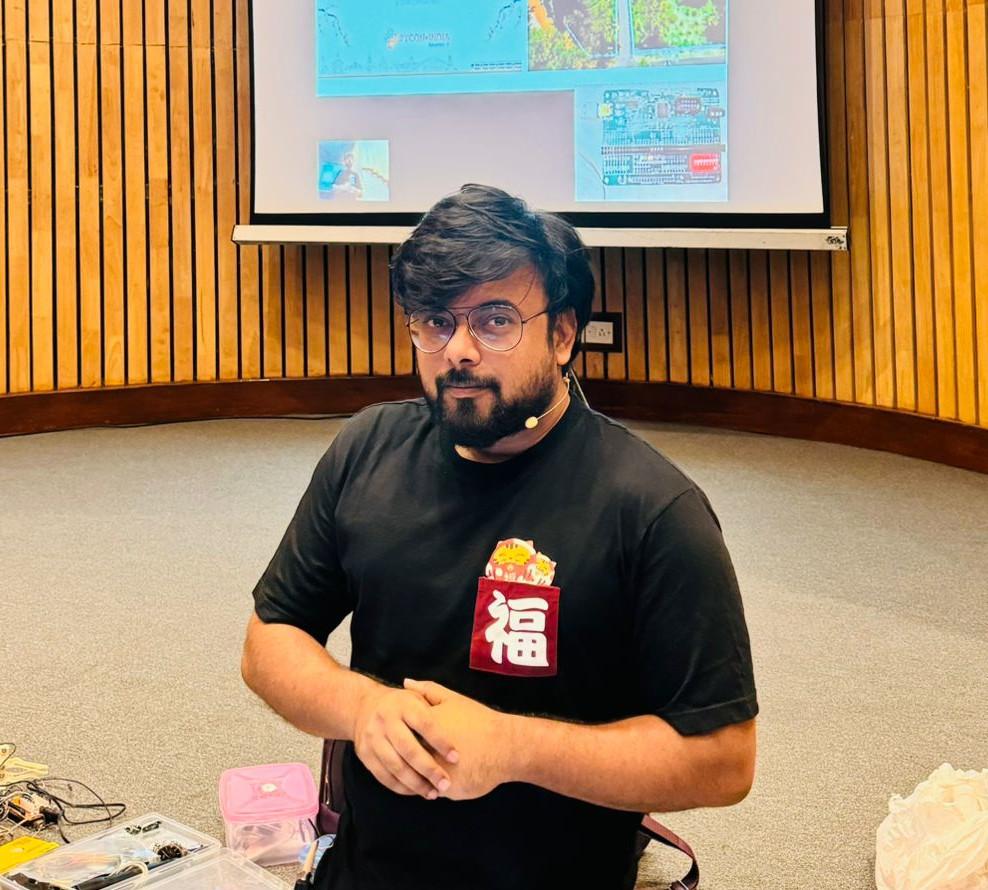KuttyPy : A no Cost transformation of the ubiquitous Arduino into an affordable data acquisition system for STEM
Science is often described as the pursuit of understanding how nature works. While the earliest scientists used their senses to record events and the behavior of physical objects under various scenarios, the modern day researcher has access to a host of technological marvels that go well beyond the human body's sensing abilities. However most of these custom built products with a niche market, have eye watering price tags, and are confined to advanced labs with limited access.
Often one will find that certain sensing tools find use cases beyond laboratories, and mass manufacturing reduces their prices by several orders of magnitude. As an e.g. , one can find pressure sensors with 0.01mBar resolution for less than a hundred rupees, or a temperature sensor with 0.01C resolution, or a 3 axis magnetometer which is found in almost all cellphones to act as a compass. All of which find use in a STEM lab.
How can one use these sensors in labs?
An Arduino device interfaced to a BME280 sensor can be programmed to dump its readings(Pressure, Temperature, and Humidity) onto a connected computer,
Record them and plot graphs or make other analyses etc.
This can be quite challenging especially for students who are not familiar with programming, or embedded systems.
Introducing an open source alternative called [Kuttypy](https://github.com/csparkresearch/KuttyPy-GUI) .
It is a modified bootloader for the Arduino that allows you to read/write to any of the internal registers to convert it into a test and measurement equipment which can interface with a host of sensors in a plug and play manner.
Use with its Python library(https://kuttypy.readthedocs.io/en/latest/programming/intro/), or via a graphical interface(https://csparkresearch.in/kuttypyplus.html)
Scratch-like drag and drop interface available.
Dedicated hardware
KuttyPy Plus : For training on Embedded Systems
STEM Turtle : focuses on plug and play sensors, and has dedicated connectors for various devices such as displays, servo motors, stepper motors, distance sensors etc.
Blocks-to-Bots
At the university of Calicut, we have a long running program called Blocks-to-Bots which uses kuttypyplus to teach the basics of Embedded sytems, robotics, and sensors to eigth graders across district via 2 day workshops. Students perform various STEM experiments such as estimating the height of the building using just the connected pressure sensor and their android phones running the Kuttypy app. It has now seen more than 2000 attendees, and the STEM Turtle board was designed recently to better suit this program's audience.
I will talk about the journey of this project, and how to make simple and affordable data collection systems from Arduino boards. I shall towards the end also talk about how one can augment a simple microcontroller with advanced analog signal processing circuits to develop more capable intstruments such as SEELab, a platform for STEM education which can be used to cover an electronics 101 course by itself.
A new life to the sub 300 Rs Arduino board you may have lying around.
Make it into a portable data acquisition tool if you've got an android phone.
Some information on how electronics devices are manufactured at scale.
STEM focussed training workshops being conducted at the University of Calicut
Which track are you applying for?
Jithin BP
